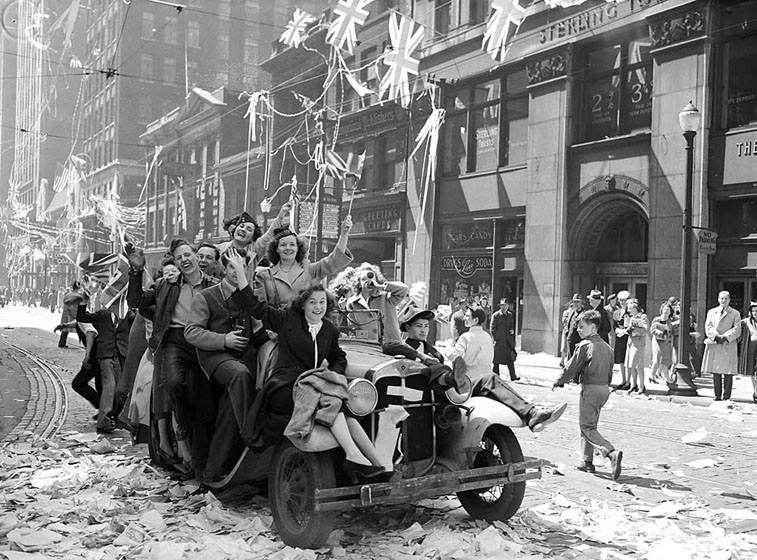
On this day in 1945, the Second World War finally ended in Europe after Nazi Germany formally surrendered its armed forces. Just eight days previously, Adolf Hitler had committed suicide, so the surrender was authorised by his successor, Karl Donitz. While the armistice was signed in the early hours of 7 May, it wasn’t until later that day that the rest of the world was informed. At 7.40pm, the Ministry of Information made a short announcement, declaring, “In accordance with arrangements between the three great powers, tomorrow – Tuesday – will be treated as Victory in Europe Day and will be regarded as a holiday.”
Celebrations immediately erupted throughout the western world. In the UK, more than a million people took to the streets, while in New York thousands congregated in Times Square to rejoice in the news. At 3pm on 8 May, British PM Winston Churchill spoke to his country from the Cabinet Room in 10 Downing Street to remind them that, while a huge victory had been scored, Japan still had to be defeated.
Later that night, Buckingham Palace was lit by floodlights for the first time since 1939, and two searchlights made a huge “V” sign above St Paul’s Cathedral, marking an iconic moment in British history as the country had spent years in blackout. However, despite the mass celebrations, some people found the whole situation to be bittersweet: millions of lives had been lost and, after the celebrations were over, a huge anti-climax was felt. The war had been won but it would take years for people to restore their former lives and achieve true peace within themselves.
